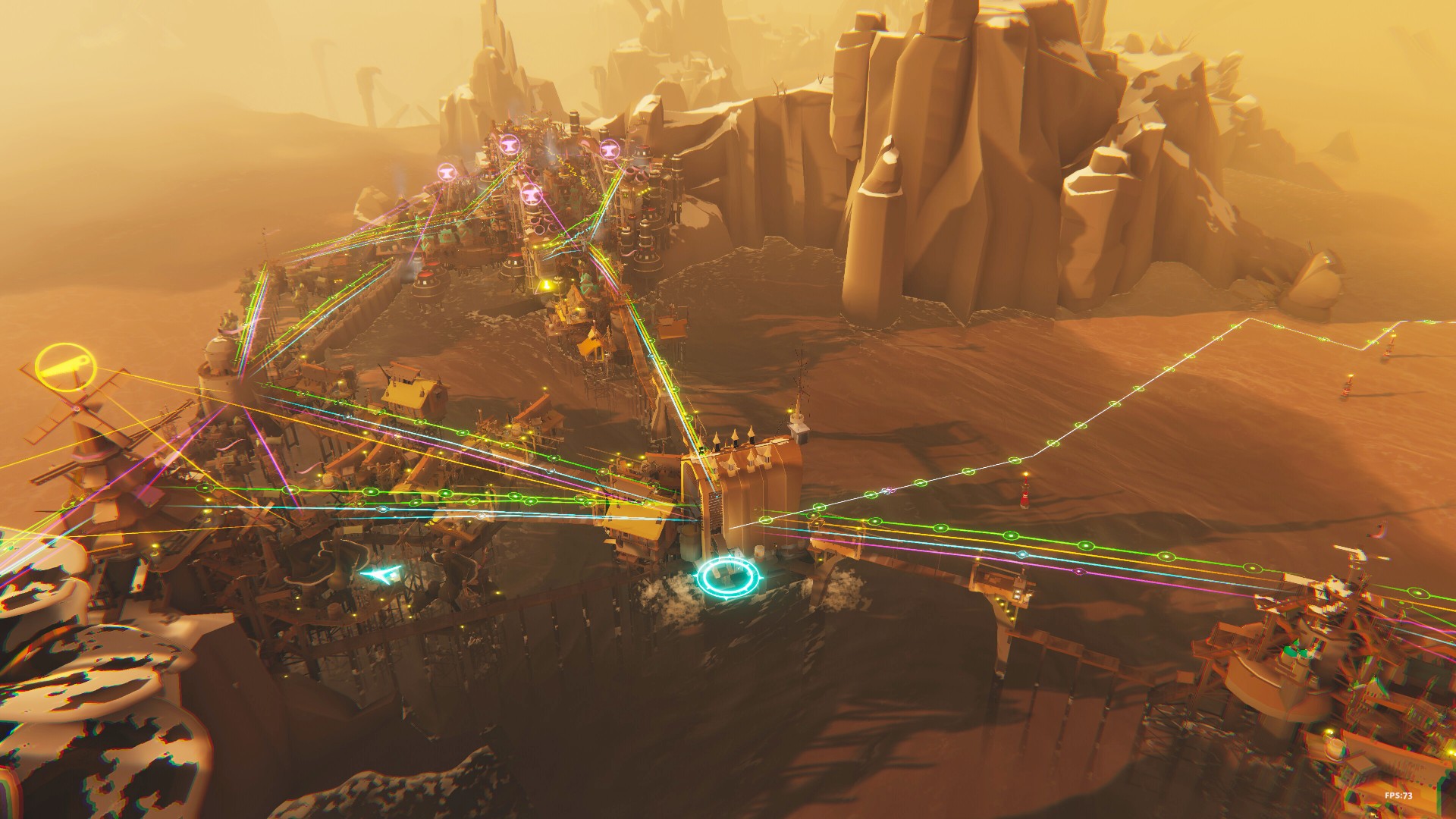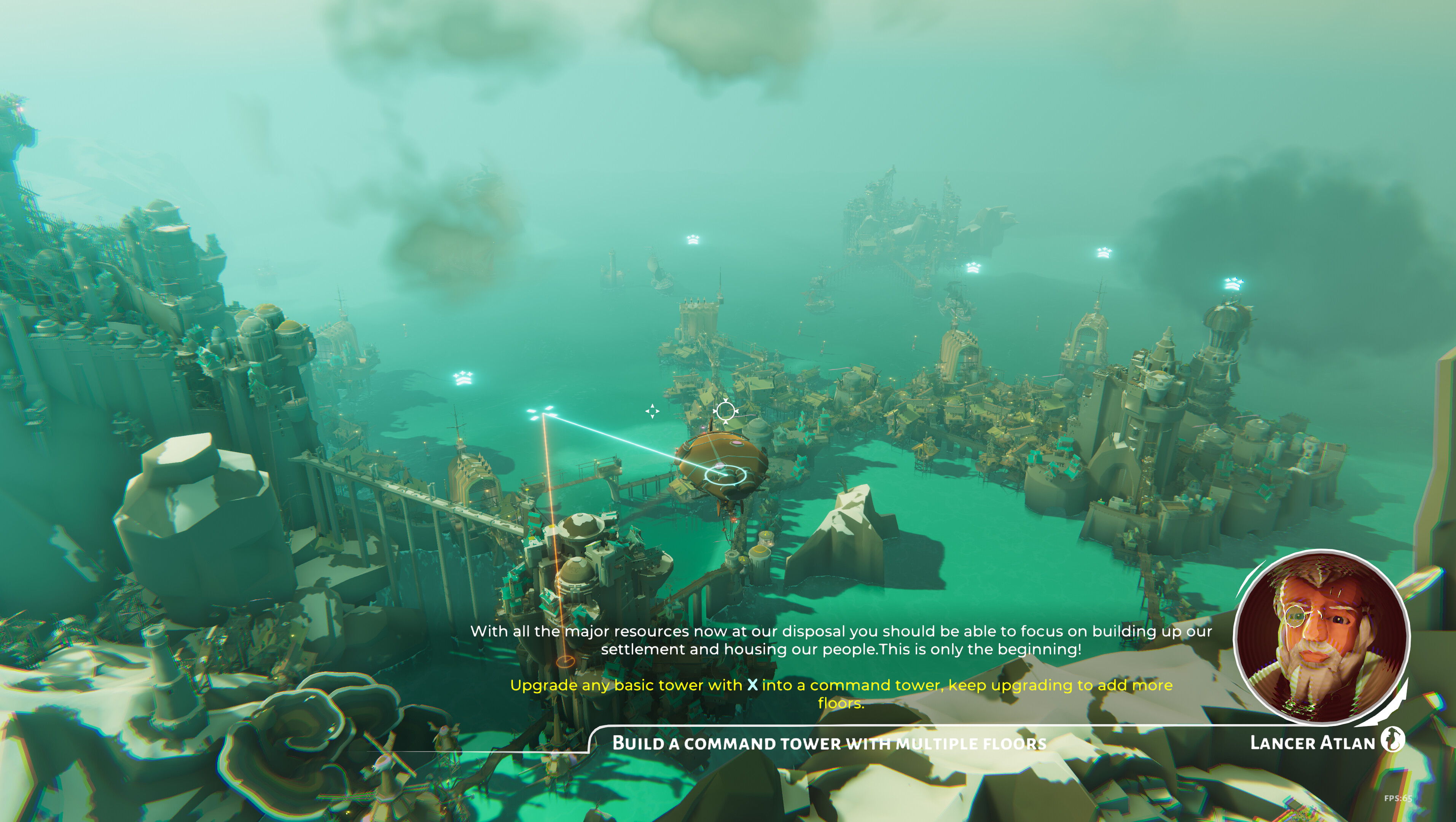Between Frostpunk 2 and Cities Skylines 2, city builder fans have a lot to look forward to in the coming months. A stalwart of PC gaming, it’s always intensely satisfying, poring over your intricate topographical and urban designs, then sitting back to marvel at your architectural creations. But even games like Civilization and Command and Conquer, which blend building and extensive strategy, invite a kind of efficient, sometimes detached approach, where you care more about maximizing success and productivity, and less about the personality of what you’re developing. This is where Bulwark: Falconeer Chronicles, available to try now thanks to a free Steam download, comes in, using slick, kitbash building mechanics to bring a personal connection back to the building sim.
Created by solo developer Tomas Sala, Bulwark: Falconeer Chronicles is a spiritual successor to the dragon-based, open-world air combat game The Falconeer. A city building game with a kitbash twist, rather than select and repeatedly place and drop the same constructions with the same designs, Bulwark is about creating an infrastructure, recruiting other people and factions to your project, and marveling at the unique settlements, towers, and industrial complexes they build for themselves. Across a desolate mountain landscape, you build fortifications, roads, and connections, and facilitate your people to express themselves through their own organic creations.

“Tomas is a massive fan of the building genre,” Gary Marshall, product manager for Bulwark’s publisher Wired Productions, explains during PCGamesN’s exclusive interview at WASD. “But the one thing that Tomas saw was that they all follow this similar kind of format or direction, where once you’ve built your first cities or civilization, or once you’ve built your first base in Command and Conquer, you stop being intimate with them. They just become a number, a thing, a menu that’s on the side. They get lost in the macro view.
“We wanted to take this kitbash approach where, instead of it being like set buildings where you always know what they’re going to look like, you’re just organically building shapes. It’s like when places do get built in reality, they’re often a product of the environment that they’re in. The whole point of Bulwark is that there’s no wrong way to build.”
With minimal UI and graceful, intuitive mechanics, the objective of Bulwark is to build – and allow the people within your faction to build – impressive settlements and fortifications to help defend from aerial attacks. Dragons and airships from warring opponents will regularly try to destroy your world, and it’s only by recruiting the right combination of captains, leaders, and other settlers that you can co-create a city that will stand the test of time. It’s a beautiful but bleak world, and your role is to protect the last vestiges of humanity from complete destruction.

“I think you find this with solo devs,” Marshall continues. “A lot of their art tends to be about where they are emotionally – when you’re one person who’s handling everything, it becomes this outpouring. We keep saying that next year is going to be the year that our world stops being on fire. And so the game is about a kind of positivity, the ability to take something even when it seems there’s nothing there and forge something out of it. And a lot of that comes from Tomas really.”
But it’s not all about efficiency and productivity. Bulwark wants to bring back the personality and close connection that strategy game players feel towards their creations. The kitbash building system, whereby every leader, faction, and group creates buildings unique to their culture, and every building is a new and distinctive combination of shapes and styles, means that no two parts of your city will look the same. Rather than build, maximize, move on, in Bulwark, everything you create is an individual place with individual character. You want to protect them, because they’re exclusively yours.

“In a lot of builder type games,” Marshall says, “there’s always that thing of trying to find the most ideal method to be the most efficient possible, which is fine, but once you’ve done that a couple of times you’ve removed any tactile interaction with the building. You’re not really looking at what you’re building anymore. You’re looking at the efficiency. Bulwark is about bringing players back into the tactile feel – I’m building something; I’m not just ticking a box here or dropping something. Each faction that you bring in has their own culture and their own aesthetic that will start to form around them.”
Although we’re still waiting for a release date, you can already try Bulwark: Falconeer Chronicles thanks to a free demo on Steam. Marshall also says it’s possible multiplayer will be added later in development, though can’t offer any guarantee.
“It’s not planned, but game development is impermanent and organic,” Marshall says, “and Tomas is enough of a maverick that if he wants to try something he will try it. So, absolutely no plans yet, but given the track record of how Tomas develops games, there’s absolutely no guarantee at some point Tomas isn’t going to call up and go ‘I want to start a multiplayer.’”
While we wait for Bulwark to arrive, try some of the best strategy games. You can also get busy with the absolute greatest building games on PC.
WASD 2023 reporting by Nat Smith.
